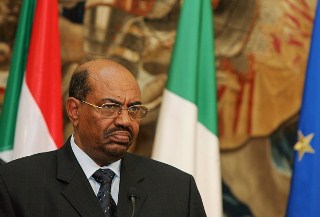S. Sudan: we are not obliged to arrest Sudanese president Bashir
By Ngor Arol Garang
March 14, 2012 (JUBA) – South Sudan said on Wednesday it is not obliged to arrest Sudanese president, Omer Hassan al-Bashir, who is scheduled to visit the country’s capital, Juba, as part of the framework agreement which the two sides signed in the Ethiopian capital of Addis Ababa on Tuesday.

Amum said he is aware Sudanese president Bashir is wanted by the International Criminal Court (ICC) but his country will not arrest him “because we have problems to settle first” and that South Sudan does not hold an ICC membership.
Bashir was the first sitting head of state to receive an arrest warrant from the ICC. He is accused of war crimes, crimes against humanity and genocide, committed in Darfur.
Since the issuance of the warrant in 2009, Bashir has continued to travel including to countries which have signed the Rome Statute, upon which the ICC is based, relatively unimpeded.
However, in June 2011 fears over arrest allegedly resulted in a delayed trip to China. Also in December 2011 Malawi came under international scrutiny for hosting Bashir.
Amum was asked at the briefing if, as a member of the United Nations (UN), South Sudan is obliged to execute the warrant against Bashir.
He noted the successes of the current talks in which agreements on nationality and border demarcation have been achieved. The remaining issues will be discussed by Bashir and the South Sudanese President, Salva Kiir, in Juba.
“The signing of these two agreements shows that the two sides have realised their mutual benefits and interests to commit themselves to reaching a peaceful settlement on issues of contention. The agreements actually marks a new beginning with the spirit of readiness to discuss these issues without the old thinking that looks at issues as members of one country,” Amum told journalists.
The chief negotiator on behalf of South Sudan said the nationality agreement allows citizens living on both sides the right to live and own properties as well as other basic rights, including freedom of movement and establishing and carrying out business activities in accordance with the law of each state without fear of confiscation.
The other agreement on border demarcation allows the two sides to form joint border committee and joint technical team whose work shall commence within 60 days after the signing of the agreement.
Since investigation started, the ICC has also issued warrants for the current governor of South Kordofan, Ahmed Haroun, and Sudan’s defence minister, Abdelrahim Mohamed Hussein.
(ST)
